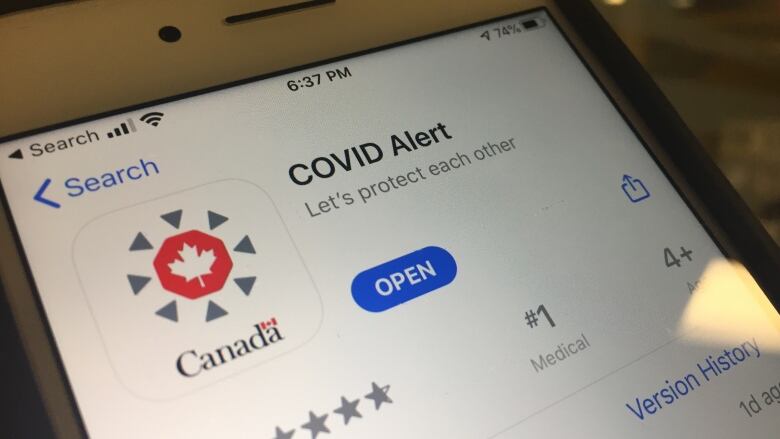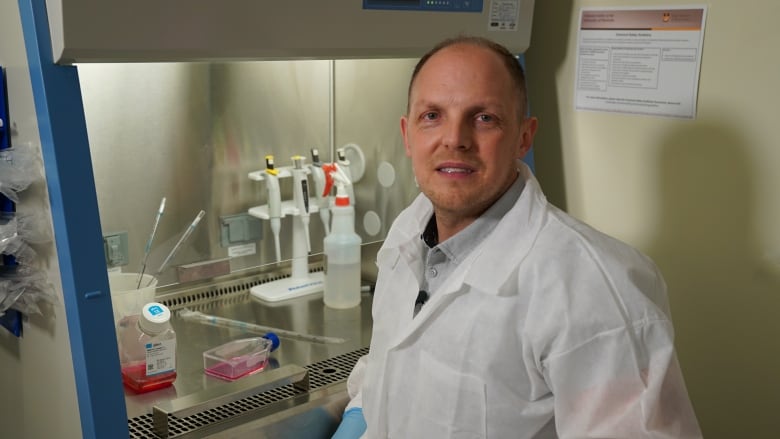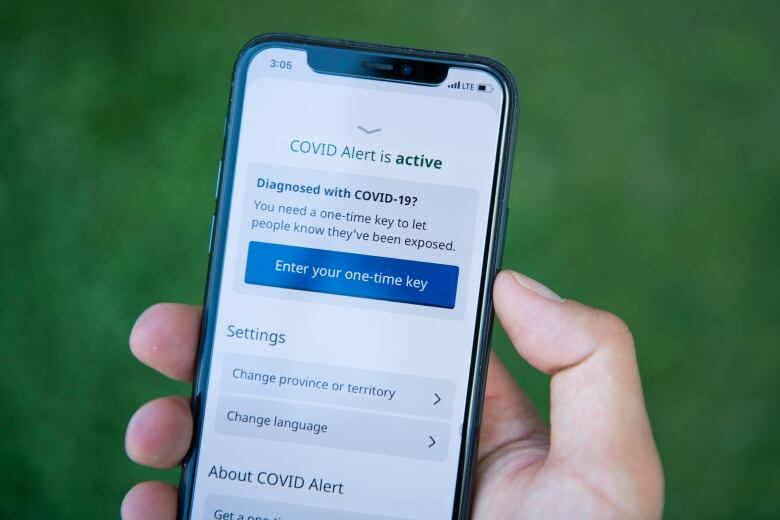COVID Alert app is another tool to help in battle against virus, microbiologist says
Jason Kindrachuk says app helps identify if you've been in contact with someone who has tested positive

So far, fewer than three million people across Canada have downloaded the federal COVIDAlert app.
One researcher is hoping that number increases dramatically in the coming weeks. Jason Kindrachuk, assistant professor and Canada Research Chair in Emerging Viruses at the University of Manitoba, says the app could be a game changer.
"I think that this is probably one of the best things that we can have moving forward to try and get people some sort of discrete mechanism to identify whether or not they have potentially been around somebody that's been exposed," Kindrachuk told Saskatoon Morning's Leisha Grebinski.
"And doing it in a way that gives a quick turnaround notification without providing any personal identifying information."
In Saskatchewan the app has been available to download for the past two weeks. The app uses Bluetooth technology to connect to other phones with the app.

When someone gets a positive COVID-19 test, they are given a code to put into the app. Then, any phone that has come into close contact with them will be notified that they were close to a positive COVID-19 patient.
"It will look for basically a period of about 15 minutes, because that seems to be the time period in which we see the majority of transmission events occurring from what we think about this virus," Kindrachuk said.
The app will then give instructions on whichsymptoms to monitor for, advice for self isolation, or testing if symptoms develop.
It does not collect any personal information.
Kindrachuk, who is currently on a one-year secondment to the University of Saskatchewan as part of a collaborative team advancing COVID-19 research, said the app's effectiveness will depend on how many people download it.
"I think we're starting to see an uptick [in people downloading the app]," he said, adding, "The more people that that can actually get it onto their phones, the better we're going to be in terms of being able to to see the long term benefits of this."
The app is another tool in the fight against COVID-19 along with contact tracing.

The app is a more expedient way of notifying people that they came into contact with the virus, Kindrachuk said, adding a faster notification could be the difference between someone going to the store and not going to the store while asymptomatic.
But the app does have limitations because it doesn't collect any personal information.
For example, if you do get an alert on your phone you won't be able to identify who it was you came in contact with and under what circumstances.
"I look at this as being another piece of the puzzle for us to try and get through this as quickly as possible," Kindrachuk said.
He encouraged everyone to download the app.
"Even if you don't think you will ever be around people that have COVID, we've seen more than enough stories of people that had no idea that they would ever be exposed or be in a situation where they'd be exposed and ended up positive," he said.
"This virus doesn't know any boundaries. So for us, this is probably one of our best pieces of ammunition we have right now to fight back against it."
With files from Saskatoon Morning












_(720p).jpg)


 OFFICIAL HD MUSIC VIDEO.jpg)
.jpg)



























































































